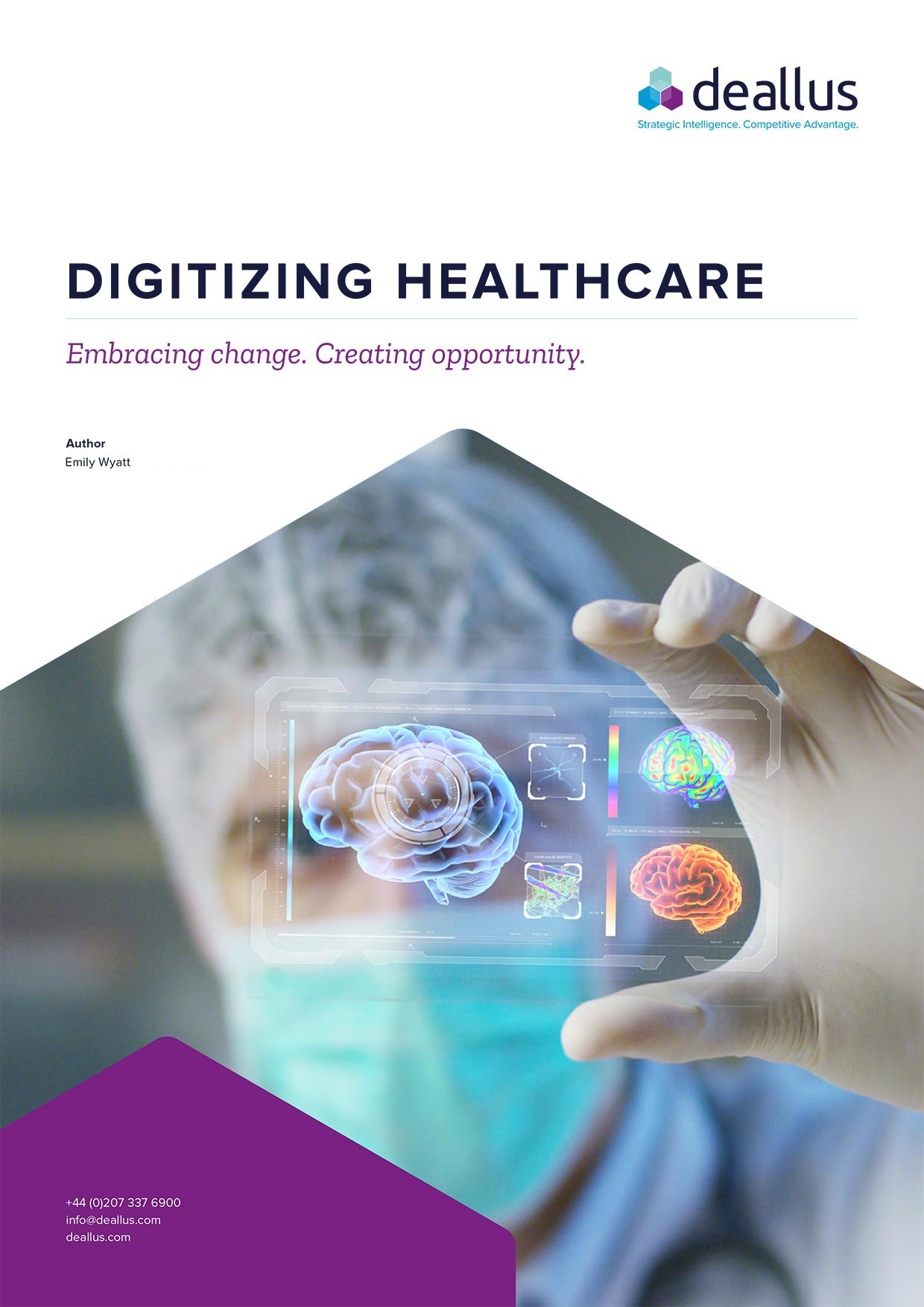Digitizing Healthcare – Embracing change. Creating opportunity.
Emily Wyatt
The future of healthcare is digital
For many industries, embracing digitization has become a matter of survival. Healthcare has always had a reputation of being resistant to change, but consumer demand and a rapidly evolving technology-driven world have led the digitization of healthcare to move at a frantic pace.
In comparison with other industries, healthcare has been slow to take advantage of the digital revolution. Traditionally healthcare has always been a difficult industry in which to innovate; it is highly regulated, expensive, complex and risk averse. However, rising drug development costs, increased patient expectations, and a growing dependence on health resources, place the industry under increasing pressure to move with the times. Many organizations with an interest in health, including the pharmaceutical industry, medical technology companies, health insurers, and payers are focusing on the digital world. However, the strongest digital health innovators are now coming in from outside the industry.
How tech companies are driving digital transformation
Healthcare represents an incredibly lucrative opportunity for traditional technology companies. The tech giants – Alphabet (the parent company of Google), Amazon, Apple, Microsoft and IBM – are taking the lead and heavily investing their time, resource and talent into healthcare.
Each of the major tech companies are using their core business strengths to create digital health initiatives across a variety of platforms. These are being implemented at every touchpoint of the patient/health professional journey ranging from data storage, artificial intelligence (AI), e-commerce, voice-enabled solutions, consumer apps and wearables. By developing tools that patients and health professionals embrace, and through collaborations with healthcare providers, the Big 5 are poised to reinvent the healthcare industry.
About the author
Emily Wyatt
Emily is a Senior Associate based in the London office. Since joining Deallus, Emily has lead research for top tier pharmaceutical clients supporting their global strategy to implement personalised healthcare initiatives across the value chain. She has also facilitated competitive simulation workshops looking at the impact of Tech disruption in healthcare. Emily has significant experience across a variety of therapeutic areas and industries including neuroscience, oncology, immune-oncology, companion diagnostics, liver diseases, autoimmune diseases and personalised healthcare.
Emily holds a MPhil in Bioscience Enterprise from the University of Cambridge and a BSc Honours in Biochemistry from the University of Bristol. Throughout her career, Emily has also developed strong expertise in the medical devices space, having led business development projects for medical device companies in oncology and inflammatory diseases.
You may also be interested in…
GlobalData announces acquisition of market leading competitive intelligence solutions provider Deallus
GlobalData Plc, a London-based leading data and analytics company, has completed the acquisition of Deallus from private equity firm Archimed. Deallus is a London-based market-leading competitive intelligence solutions provider focused on the global life sciences sector.
Uncertainty is here to stay
Another turbulent year is ending, marked by economic, geopolitical, and technological shifts. With six decades behind me, I embrace this uncertainty as the norm. What does this mean for corporate decisions, especially in Pharma?
Season’s Greetings
From all of us at Deallus we wish all our clients, colleagues and friends a very peaceful and prosperous festive season.
The Migraine unveiling: Bringing the invisible disability to light
Globally, headache disorders affected approximately 40% of the population, or 3.1 billion people in 2021. A migraine attack goes beyond a severe headache; it is a constellation of symptoms that may include neck pain, nausea, dizziness, visual disturbances and sensitivity to light, sounds and smell among a variety of other manifestations.






